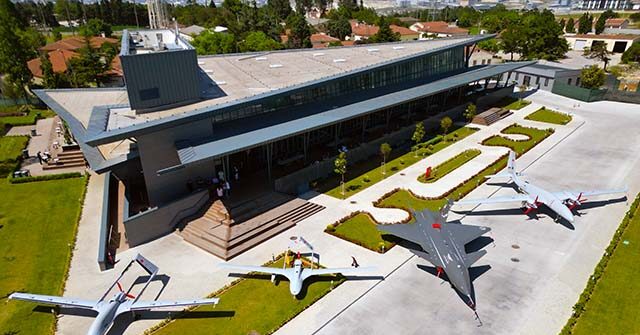The Kingdom of Saudi Arabia signed two contracts with Turkey’s Baykar corporation on Tuesday to acquire combat drones, the latest in a series of big sales for Baykar as the low cost and outstanding performance of its weapons in Ukraine pique the interest of governments around the world.
Saudi Defense Minister Khalid bin Salman said Tuesday the contracts with Baykar have “the aim of enhancing the readiness of the kingdom’s armed forces and bolstering its defense and manufacturing capabilities.”
According to Baykar CEO Haluk Bayraktar, the Saudi deals represent the largest defense and aviation contract in Turkey’s history – and another huge Saudi contract to buy munitions from Turkey is still in the works.
“With the comprehensive agreement, cooperation will be made on technology transfer and joint production in order to advance the high technology development capability of the two countries in the upcoming period,” Bayraktar said.
Baykar representatives said the deal included technology transfer and joint production of the drones with Saudi companies.
Details of the drones purchased by the Saudis were not provided, but the deal reportedly includes Baykar’s Akinci drones, a larger and more expensive platform than the Bayraktar TB-2 model that made such a big splash in Ukraine.
The Akinci (“Raider”) is billed as a drone replacement for manned fighter jets, capable of both air-to-air and air-to-ground combat with a payload about ten times as heavy as the TB-2. The Akinci’s large twin engines are made in Ukraine. Haluk Bayraktar has claimed the Akinci drone is superior to the legendary U.S. MQ-9 Reaper, as it boasts more advanced artificial intelligence, and he also claimed clients who previously relied on Chinese drones cast them aside once they have an inventory of Baykar’s top products.
Saudi Arabia became the seventh foreign customer for Akinci drones. Previous buyers included Pakistan, Kyrgyzstan, and Azerbaijan, the latter of which credited Bayraktar TB-2 drones for helping it win the Nagorno-Karabakh conflict against Armenia in 2020. Two other Gulf states, Qatar and Kuwait, have purchased TB-2 drones from Turkey.
The deals were finalized while Turkish President Recep Tayyip Erdogan was visiting Saudi Arabia. Erdogan and the de facto Saudi chief executive, Crown Prince Mohammed bin Salman (MBS) both attended the signing ceremony for the drone deals.
Besides bringing a fresh injection of much-needed cash into the Turkish economy, analysts view the big drone sale to Saudi Arabia as a sign Turkey has repaired strained relations after Turkish support for the Muslim Brotherhood during the Arab Spring, the Qatar diplomatic crisis, and the murder of writer Jamal Khashoggi, killed and dismembered at the Saudi consulate in Istanbul in 2018, greatly angering Erdogan’s government.
Erdogan plans to stop in Qatar and the United Arab Emirates (UAE) on his tour of the Gulf to drum up more investment in Turkey, where the government’s budget deficit has surged 700 percent of the past year, annual inflation is approaching 40 percent, and the national currency has declined by 29 percent.
Erdogan picked up some investment commitments from Riyadh in addition to selling drones to the Saudis. His entourage on the Gulf tour includes about 200 leading Turkish businesspeople, who are scheduled to attend commerce forums in each of the three Gulf states they visit.
“We are hoping to improve our relations and cooperation in many fields. We will focus on joint investment and commercial initiatives to be realized in the upcoming period,” Erdogan told reporters as he departed Istanbul.


